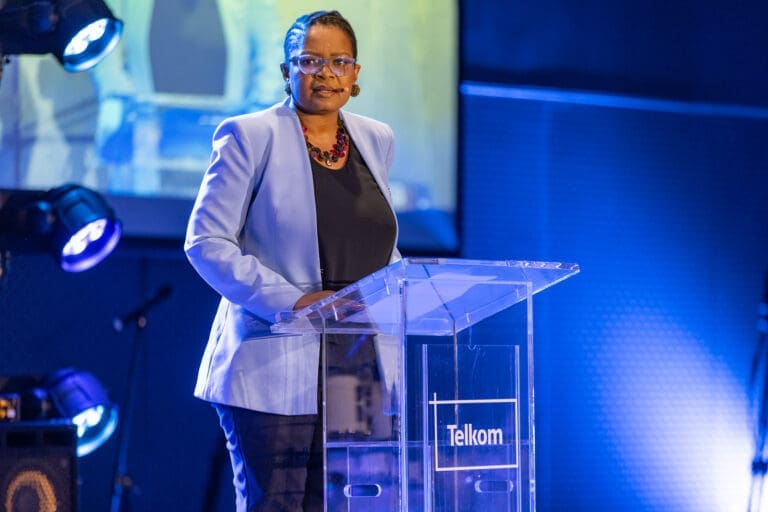South Africa is a leading country in the innovation investment ecosystem across Africa, but the current rate of investment is falling short.
With disruptive emerging technologies affecting societies, more collective investment is required to bolster the country’s innovation ecosystem and ensure that this investment is translated into improving everyday lives.
As South Africa participates in the World Economic Forum (WEF) DAVOS 2024 this month, the impact of emerging innovative technologies such as AI on various economies will take centre stage. For example, “Artificial Intelligence as a Driving Force for the Economy and Society” is one of the key thematic areas and the focus is a timely and necessary one.
The 2023 Global Innovation Index (GII), which evaluates an economy’s innovation ecosystem performance, ranked South Africa 59th among 132 economies, and ranked second among the 28 Sub-Saharan Africa economies.
This ranking considers national institutions such as the regulatory environment and the related institutions in supporting business, human capital and research investment, local infrastructure investment as well as market and business sophistication.
Innovation performance in South Africa is thus impacted by the investment made in key areas such as R&D and startup investment. While the GII report highlights the need for African economies to increase R&D investment, there is ongoing demand to improve infrastructure and foster collaboration between public and private sectors to accelerate innovation growth.
Published by the National Advisory Council (NACI) in 2023, innovation investment findings from the National Survey of Research and Experimental Development showed the decline in business funding on R&D with an only 26% contribution coming from corporate South Africa. In contrast, government-led R&D funding was 56.3% in 2020/21, the year reviewed by the study.
Overall investment in R&D declined from 0.76 of GDP in 2017/2018 to 0.61% in 2020/21.
Unfortunately, R&D expenditure from the business sector is decreasing combined with limited funding for external R&D, notably for higher education and the science councils.
More positively, investment in South African startups climbed to new heights in 2022 thanks to diversified funding from corporations and government programs alike, such as the DSI Innovation Fund among other national and international sources.
A thriving startup ecosystem is vital to South Africa as this translates to a vibrant economy, creating employment opportunities and injecting dynamism into a range of sectors.
Innovation investment has had a particularly positive impact on the youth of South Africa while increasing capacity to address social challenges on a local level. Startups, universities and research institutions and related innovation institutions, have been consistent in their pioneering of novel approaches to address the stark challenges affecting South Africa’s economy and wider society while leveraging emerging technologies.
However, access to early-stage and growth-stage funding remains a hurdle since the funds don’t always seamlessly trickle-down to the entrepreneurs. Addressing these funding gaps is crucial to ensure inclusive and sustainable growth in the innovation and startup ecosystem.


The Telkom Centres of Excellence (CoE) are a prime example of public-private partnerships supporting national innovation while addressing inequality with leading university academics across CoEs conducting research in key telecommunications and ICT areas.
The CoE programme further supports specialised training of post-graduate students (PhD, Masters and Honours) in Computer Science and Engineering (CS&E) related programs. CoEs based across various South African universities have produced over 3,600 graduates with many of the recipients of the program now holding leadership positions across the ICT and telco sector, significantly transforming the sector.
The necessity of investment in innovation is acknowledged at the highest level of government. At the end of 2023, the first Presidential Science, Technology and Innovation Panel unveiled a R1 billion (US$53 million) PhD training investment from the National Skills Fund. The panel assembled representatives from government, academia, civil society and industry, while the President of South Africa has invited further investments from private sector organisations.
All these initiatives constitute important steps in ensuring investment in innovation, particularly in key areas of R&D and human capital development.
As the driving force behind progress and evolution, innovation often demands patient, long-term capital investment due to the nature of its developmental trajectory. Whether investment addresses revolutionary ideas or already significant breakthroughs, such successes rarely materialise overnight.
By directing collective resources toward local innovators, startups and research initiatives, South Africa’s innovation stakeholders can create an environment that nurtures creativity and problem-solving to generate ground-breaking ideas.
- Mmaki Jantjies, Group Executive of Innovation and Transformation at Telkom
